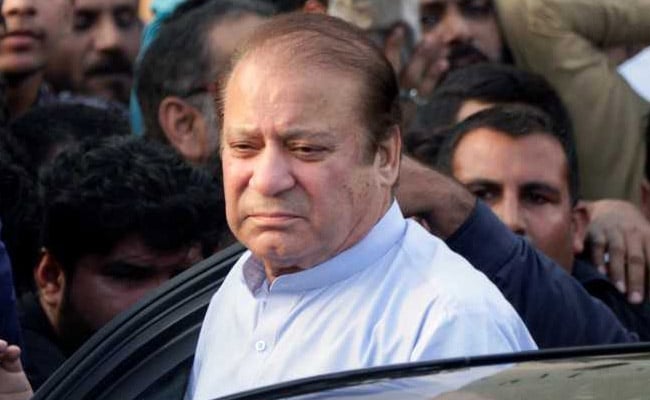
Mr. Zardari was born in 1955, raised and educated in Karachi
Islamabad:
Asif Ali Zardari was sworn in as Pakistan’s 14th president on Sunday, a day after the veteran politician was re-elected in a landslide for a second time as the coup-ridden country’s only civilian president. A remarkable comeback.
Chief Justice of Pakistan Qazi Faez Isa officiated Mr Zardari, 68, in a small but formal ceremony at the presidential palace Aiwan-e-Sadr oath-taking ceremony.
Mr. Zardari succeeds Dr. Arif Alvi, who will serve for five months after completing his five-year term in September 2023.
The swearing-in was attended by Prime Minister Shehbaz Sharif, Chief of Army Staff General Asim Munir, Chairman of the Joint Chiefs of Staff General Shaheer Shamshad Mirza and other senior army and civilian officials and diplomats ceremony.
Outgoing President Alvi, a senior member of jailed former Prime Minister Imran Khan’s Pakistan Tehreek-e-Insaf party, also attended the swearing-in ceremony.
Former Prime Minister Nawaz Sharif, Zardari’s son Bilawal Bhutto Zardari, daughter Asifa Bhutto Zardari, Bakhtawar Bhutto Zardari and other family members Attend.
Prime Minister Shehbaz Sharif congratulated Mr. Zardari on his re-election as President.
In his speech, Shehbaz Sharif said that elected members of the Senate, National Assembly and all four provincial assemblies had expressed their confidence in Zardari. He said Zardari would become a symbol of the strength of the federation.
It was Zardari’s second win as president, a record for a civilian. Previously, he served as the 11th President of Pakistan from 2008 to 2013, and was one of the four democratically elected presidents to complete a five-year constitutional term.
He has been serving as a member of the National Assembly of Pakistan since August 2018.
Mr Zardari, co-chairman of the Pakistan People’s Party (PPP), was a joint candidate of the ruling alliance and was elected on Saturday, defeating Mahmood Khan Achakzai, who was jailed by Candidate supported by former Prime Minister Imran Khan’s Pakistan Tehreek-e-Insaf party. The Sunni Ittehad Committee (SIC) leads by a huge margin.
Mr. Zardari was born in 1955 and was raised and educated in Karachi. He is married to Benazir Bhutto, the daughter of former Pakistani Prime Minister Zulfikar Ali Bhutto, who was assassinated in December 2007.
“Congratulations to all democrats Asif Ali Zardari on being sworn in as President of the Islamic Republic of Pakistan, God willing, Asif Ali Zardari will use all his powers as President of Pakistan to safeguard the country’s With political, democratic and constitutional stability the country will embark on the journey of development. Will continue to move forward,” the party said in a post on its X account on social media.
The presidency is a ceremonial position and he acts on the advice of the Prime Minister. But Mr Zardari is expected to play a larger role because his People’s Party is a key partner in the coalition government.
The chief ministers of Punjab and Sindh attended the ceremony, while Khyber Pakhtunkhwa Chief Minister Ali Amin Gandapur, who belongs to the Pakistan Tehreek-e-Insaf, did not attend.
Incidentally, about 12 years ago, a committee headed by Qazi Faez Isa, then Chief Justice of the Balochistan High Court, conducted an investigation into the so-called “Memogate” scandal for more than five months investigation and cleared Mr. Zardari of any direct involvement in the memo scandal.
On Saturday, Mr Zardari won 411 electoral votes in parliament and all four provincial assemblies, with the support of alliance parties, mainly the Pakistan Muslim League-Nawaz (PML-N) and the Pakistan Mutha Party. The MQM-P, against Achakzai’s 181 electoral votes.
The Electoral College, made up of members of the federal and provincial parliaments, votes for the president.
After partition in 1947, Pakistan’s first president was Iskandar Mirza, who took office on March 23, 1956. The first constitution was adopted and the country became a republic. Prior to this, the country was led by Governor-Generals, who ruled under the Indian Act, as amended in 1935.
“Dawn” pointed out in an editorial that Zardari is the country’s first civilian president to complete his term. His election makes him the first Pakistani to serve as president twice.
“It is clear that despite the many socio-political changes that have occurred in this country since his last term as president, his style of politics remains prevalent in the corridors of power. There is no doubt that this was an extraordinary campaign orchestrated by a sharp political mind Back,” the editorial remarked.
An editorial in The Express Tribune stated that both Shehbaz and Zardari have now returned to their original roles and are at the peak of their political careers.
“Earlier, Mr Zardari was known as the unexpected beneficiary of his entry into the presidency. This time, however, he has ensured a timely maneuver and reconciliation between the two main parties – his PPP and the Muslim League. deal, paving the way for his presidency. Return to the presidency,” it commented.
Mr Zardari easily won the vote for members of Parliament and four provincial assemblies, raising hopes that the duo’s rule would mark a new phase of stability in the country,” it added.
(Except for the headline, this story has not been edited by NDTV staff and is published from a syndicated feed.)






